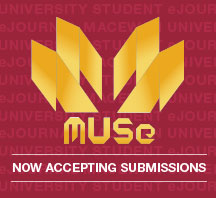Nostalgic to my Childhood, Symbolic to Your Culture
Discussing the Intercultural Adaptation of Culturally Bound Fairy Tales
DOI:
https://doi.org/10.31542/muse.v6i1.2280Abstract
This essay explores fairy tales as culturally bound stories that serve as the means of preserving and passing on cultural values and collective identity. Under the guise of cultural preservation and teaching, fairy tales communicate cultural values, therefore keeping cultures ideologically stagnant; however, when appropriated fairy tales, the fairy tales cannot be fully appreciated for their cultural and ideological value. By first establishing fairy tales as communication symbols that inform cultural tradition and ideology, fairy tales are discussed for their role in moral education for children and in shaping children’s perceptions of culture. German fairy tales from Johann Wolfgang von Goethe and the Brothers Grimm are examined for their association with the construction of German culture and the rise of German nationalism. Finally, fairy tales are discussed for their role in American culture, though as appropriated texts, are tokens of entertainment rather than culture.
References
Downloads
Published
Issue
Section
License
Copyright (c) 2022 Jaime Bergum

This work is licensed under a Creative Commons Attribution-NonCommercial 4.0 International License.
By publishing works in MUSe, authors and creators retain copyright under a Creative Commons Attribution NonCommercial (CC BY-NC) license, which allows others to share these works for non-commercial purposes as long as credit is given. The MUSe Editorial Board reserves the right to make copy-editing changes to works prior to publication to ensure they conform to the publication's style and quality standards. The Editorial Board also reserves the right to archive published submissions in MacEwan University's institutional repository, RO@M.



